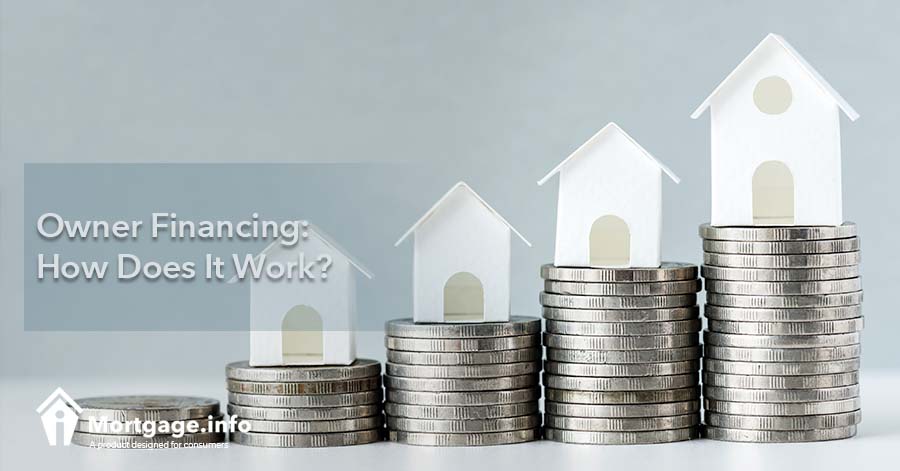
Sometimes you have more option than strictly obtaining financing from a lender. Owner financing offers you the opportunity to obtain financing directly from the seller. While not very common, this situation could occur, giving you another chance at becoming a homeowner.
How it Works
The premise of owner financing is much the same as standard financing. Rather than the lender providing the funds to the seller to pay him off and give the buyer rights to the home, the seller loans the money to the buyer. This means that no money exchanges hands. Instead, the seller and the buyer agree to the terms of the loan, which include:
- Interest rate
- Term or length of the loan
- Payment date
- Payment amount
The seller must record the mortgage or deed with the county, just as a lender would in an effort to protect himself as well as protect the buyer.
The Down Payment Requirement
As with most other loan programs, aside from the USDA or VA loan, seller financed loans typically require a down payment. Every owner can determine the down payment they are comfortable receiving, though; there are no requirements. Some owners will accept as little as a few percent, while others require a heftier sized down payment, such as 30% or sometimes even more. The larger the down payment, the more the seller feels protected. If you have an investment in the home, you are more likely to make the payments as agreed in order to protect your interest in the property.
Balloon Payments
In most cases, seller financing involves some type of balloon payment. This helps the seller keep the term short, so that he sees a return on his investment shortly, rather than the typical 30 years later, which is the most common mortgage term. The way it works is that the buyer takes out the owner financing, but after five years, or the specified term, he must pay the full amount of the loan back. This is usually possible by refinancing with an actual lender. The idea behind this process is that the buyer should have adequate equity in the home within the specified term as the house value should appreciate and the buyer should have paid down adequate principal during the time he made the payments. The shorter term protects the seller as he cannot predict his life expectancy or have the financial ability to wait 30 years to get his money back.
Types of Owner Financing
There are several types of owner financing that you can obtain. Following are the most common:
- All-inclusive mortgage – This mortgage is the type you would receive from a lender. It includes the entire amount of the financing for the home, which is the sales price minus any down payment you put down.
- Junior mortgage – Sometimes buyers cannot get enough financing for a home. For example, the lender might maximize their loan amount at 80% of the sales price. If you do not have the remaining 20% to put down, you could be out of luck. The junior mortgage from a seller, however, helps you. It enables you to secure a loan from the seller in the amount that remains after the bank financing and your down payment.
- Land contract – In this type of financing, the buyer does not immediately receive title to the home. Instead, he holds “equitable interest” which means he shares ownership with the seller. Once the final payment is made, the buyer receives ownership of the title.
Applying for the Loan
The seller should follow much the same practice that lenders follow when approving you for financing. The seller has more at stake than a lender because he does not have the capital a lender has. Because of that, every seller should inquire about the following:
- They will do a credit check, pulling your three credit scores to find the average score
- Verify your employment
- Verify your income
- Verify your assets
- Contact your references
The seller can determine what he wants to verify and how he will verify it. Once he approves your loan, he will draft a sales contract with the appropriate terms. Typically, the sales contract will include a contingency for the seller that states the sale will only go through if the seller can approve you for owner financing.
Negotiating Owner Financing
Just as you can negotiate financing for a loan with a bank, you can do the same with an owner. Before you apply for owner financing, determine what the average interest rates are at that point in time in your area. This will give you grounds to stand on when you ask for a specific interest rate from the seller. The seller should consider your exact circumstances in order to determine your interest rate. Keep in mind that because the seller is probably offering seller financing in order to sell his house faster, the terms will probably be a little more lucrative than you would receive from a bank. This does not mean, however, that the seller will accept any terms from any buyer – you still have to qualify for the loan.
There are many variables that play a role in owner financing. Typically, sellers that offer it are those that are desperate to sell their home. Maybe their home was on the market for a long time or they want to sell their home fast in a competitive market. Whatever the case may be, make sure that everyone is protected in the process by using a lawyer and ensuring that the paperwork and financing are correct to avoid problems down the road.
